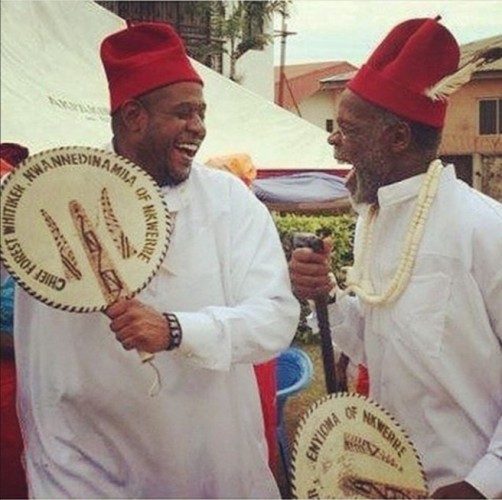those words whether derogatory or not abound. How about Nwanmoghi, for Ibibio, Anang, and Effik, Nyamiri, koboko and okoro for the Igbo. These are mere display of ethnocentrism. Their use is very insignificant to be linked to Ikwerre not being Igbo. You guys need to be well travelled in Nigeria and other parts of Igbo land in particular.
Your charge of Biafra not defending Port Harcourt is very disappointing and makes your reader wonder if you have ever read any material on wars let alone Nigeria-Biafra war. Did Enugu, Onitsha, Aba, Ikot-ekpene not over run by the federal troops. This is my first time of hearing that a country at war will purposely refuse to defend any part of her territory and in the case of Biafra, to not defend a city as viable as Port Harcourt. The first planned industrial layout in West Africa planned by the former Eastern Region government under the premiership Dr. M.I. Okpara.

I agree with Dr. M.D. Amadi that certain topic injected into this discussion has no relevance here. Post civil war abandoned property issue is one of them. The Ikwerres had no hand in the abandoned property scan of depriving people the sweet of their labour. Diobu people are by no standard backward. As early as 1927 Chief Wobo had dragged the Attorney General of Nigeria to court over the ownership of some parts of Port Harcourt. The case climbed the judicial ladder to the Privy Council. Diobu chiefs wouldn’t have remained passive while the hinterland Igbos who helped developed the city built houses without the permission of the owners of the land.
It should be noted that in the Southern areas it was considered abomination to sell land. In southern Igbo townships of Port Harcourt, Aba, and Owerri, there were two types of tenants; the customary and conventional tenants. The customary tenants were the first to acquire their property from the indigenous people after satisfying the traditional requirements prescribed by the local land tenure system. There were no deeds to be conveyed and no western survey system but the natives showing the tenant the boundaries of the land given to him or her. No documented evidence of the allocation of the property.
The second badge involved conveyance of deeds and are the conventional tenant who actually bought theirs when things had change. The government had acquired and surveyed the township. The custom of not selling land had been relaxed. This group surveyed and obtained the necessary documentation associated with real estate recordation and conveyance of deed. These two classes of tenants are still obtainable at Ogbor Hill, Ngwa Road and Over Rail/Ama Ogbonna areas of Aba Ngwa, and Owerri.
“The Rivers Province was a recent formation and was designed to meet local standing complains of the people ———. It includes the two divisions of Brass and Degema both overwhelming Ijaw and Ogoni Division inhabited, almost entirely by a tribe of the same name. The former Rivers province also including 300, 000 Ibos of which 250,000 are in Ahoada Division and 45,000 Port Harcourt towns. Port Harcourt town is a town of recent growth and rapidly increasing importance. It is built on land originally belonging to outlaying branch of the Ibo tribe.”
In Port Harcourt the abandoned property was a carefully planned and executed scheme by the Ijaw group who had wanted to get a foothold or a piece of Port Harcourt. They carefully targeted the customary tenants. Some of the Ijews themselves occupying the waterfronts are customary tenants of Diobu also. At the cessation of hostilities in 1970, they refused to vacate the building they occupied when the owners ran out of Port Harcourt for safety. They successfully got the government of the day to support them and demanded that the returnees present documents of purchase of their property to reclaim them. The customary tenants had no documents in the first place. Their host communities, landlords and neighbors know them, but, none of these were part of the requirements when they obtained their property from their landlords. The conventional tenants who had their documents reclaimed theirs. The question is where these property owners not paying taxes on their property? Why didn’t the Government on their end, use their tax records to determine who owns which property? The Ikwerres had no hand in Abandoned Property saga rather they distinguished themselves in handling the situation and used diplomacy to avert massacre, the Asaba style.
Vincent Erondu







